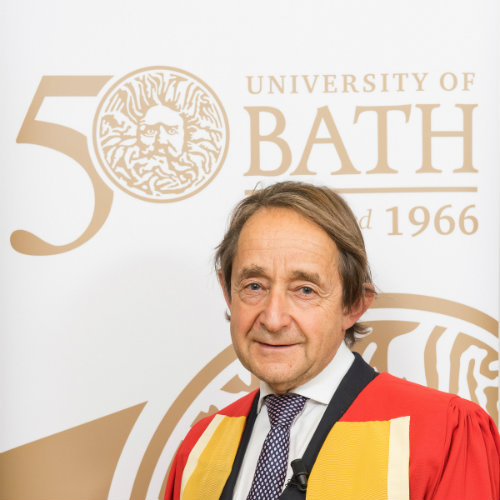Sir Anthony Seldon is one of the country's leading educationalists and also one of our foremost political historians and analysts. In both fields, he has made an outstanding contribution that has inspired his fellow educationists and provided penetrating and timely insights into the state of politics in the United Kingdom. The breadth and depth of his contributions demonstrate his commitment and passion for education and public life. Sir Anthony graduated with an MA in Politics, Philosophy and Economics from Oxford and a PhD, from the London School of Economics. Given this intellectual background, we might have expected him to enter politics, as many have done before him and since. However, it is typical of Sir Anthony that politics was not his immediate destination. Instead, he undertook a PGCE at King’s College London, leading to a distinguished career with appointments to top public schools in England, including as headmaster of Brighton College (1997-2005) and as the 13th Master of Wellington College (2006-2015). Under him, both were rated the most improved schools by A level results in Britain. Currently, he is Vice-Chancellor of the University of Buckingham.
In itself, such a career would be noteworthy but Sir Anthony’s has been distinguished by innovation in his concern to address some of the pressing practical problems confronting education. His commitment to challenging tasks extends into areas of debate and possible controversy. For example, he has asked the philosophical question, Should schools be teaching happiness? He answered it in a typical ‘hands-on’ way by seeking to teach for happiness at Wellington College. We should note how important taking a lead in this area is because young people are finding the world they inhabit increasingly stressful. Encouraging them to develop ways of coping, so that they can feel more at home is clearly important not only for their educational careers but their subsequent lives. So important does he consider this challenge to be that he founded Action for Happiness with Lord Layard, the eminent economist, and is President of the International Positive Education Association.
At least two more of his many innovations in education are noteworthy. He championed the International Baccalaureate (IB) at Wellington, seeing it as a qualification fit for the twenty-first century. Here we should note that, in this, he is at one with colleagues at Bath who have been so influential in the development of the IB. He has been greatly concerned about the divide between the public and state schools sectors. In characteristic manner, not only has he written about this topic but also played a key role in establishing the Wellington Academy, a state-funded comprehensive school, in Tidworth, Wiltshire. In choosing his current role at the University of Buckingham, he continues a commitment to innovation – Buckingham is the only independent university in the UK with a Royal Charter.
If there is a link between his activities as an educator and his political interests, it is that he has advised and commented on education policy. To do so much in education is, in itself, to mark out a distinguished career. To this he has added the role of a distinguished historian. He is the author of some of the most significant books to have been written on contemporary British politics and co-founder and first Director of the Institute of Contemporary History.
He has written or edited over 35 books, including his high-profile work on our last four Prime Ministers. There are several notable qualities that distinguish this work. It is in the finest traditions of British Empiricism, focusing on the day-to-day challenges that these Prime Ministers have had to confront, written with clarity in its style and judgements. In this, he has performed a service for posterity, for the interviews which form the bedrock for his analysis will be available to future historians and those that will place these interviews within a broader theoretical framework. This work means that future historians will have, in their possession, invaluable insights into what the world looked like from the perspectives of these politicians. The lessons that historians will extract will be tempered by their understanding of the perspectives that Sir Anthony and his colleagues have drawn from their subjects but Sir Anthony’s work is characterised by the lack of partisan politics: his judgements are even-handed.
This brings us to two of the most noteworthy qualities in Sir Anthony’s contributions to public life. His work is finely balanced, seeking to understand the world from different perspectives. It is collegial. He has always collaborated with others, even when his innovations have pushed the educational and political boundaries. It is to his great credit that, in these endeavours, his work has been embraced by many from across educational and political divides.
Finally, he exemplifies the one quality all educators must have: an optimism that the problems of this world can be addressed.
Vice-Chancellor, I present to you Sir Anthony Seldon, who is eminently worthy to receive the Degree of Doctor of Letters, honoris causa.
Professor Hugh Lauder Orator
